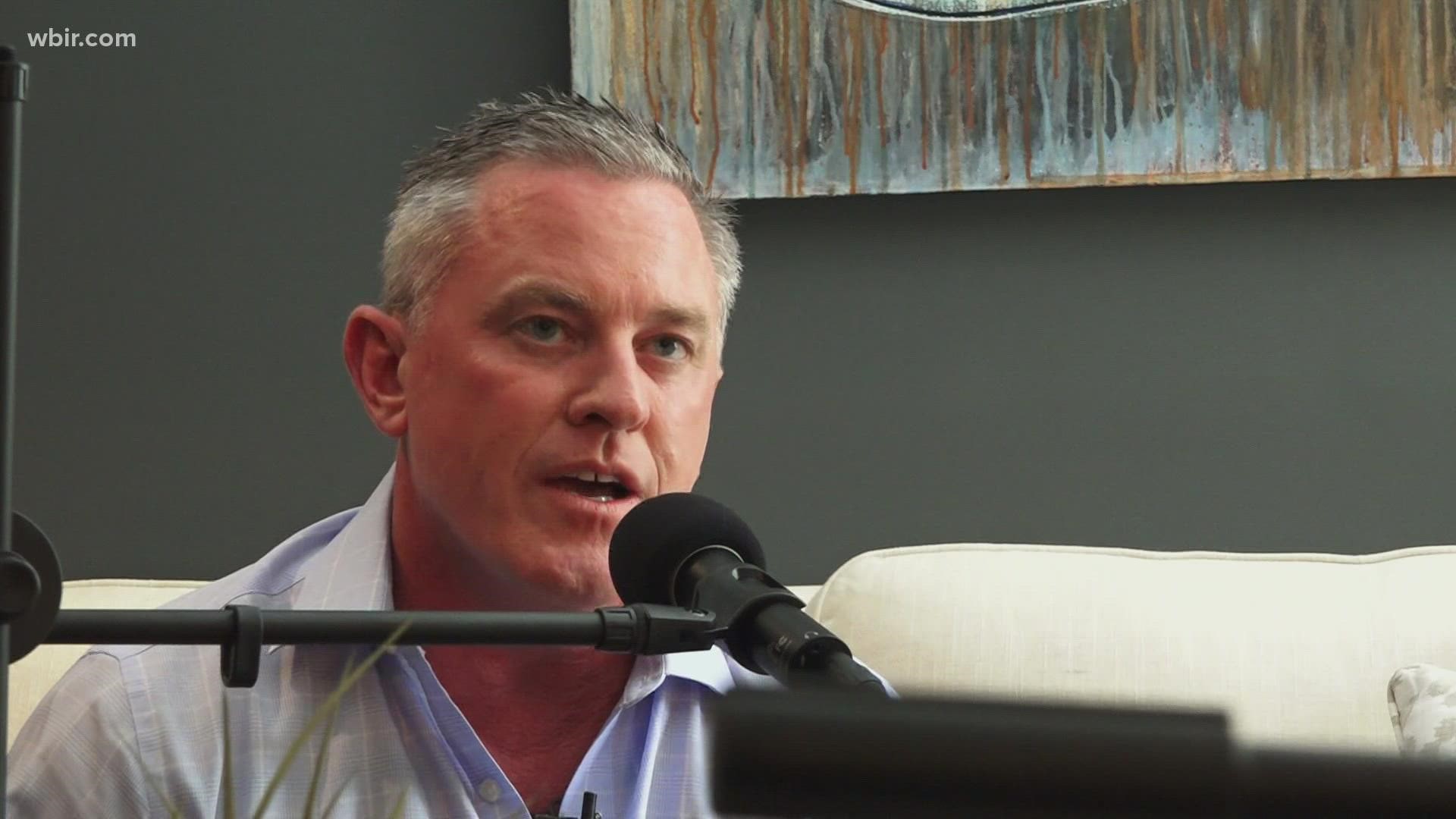KNOXVILLE, Tenn. — Eric Bell knows that even in the darkest moments, there are still bright spots to be found. That's why he grabbed a microphone and started talking about his mental health struggles.
Bell and Anthony Palmer started the "Turning on the Light" podcast in 2022. The pair of friends are using their newfound platform to educate and include others on the topic of mental health.
According to the CDC, men are less likely to reach out for mental health help than women.
Bell is committed to sparking the conversation so many men struggle to start.
"It's harder for men because, for some reason, we think that by sharing our story and our struggles, then we'll be seen as weak and that it's not accepted by society," Bell said. "I would actually say that it's the opposite is true."
The former college athlete had to learn what that meant for himself. He ran track and was always focused on getting better, chasing perfection and ignoring what was going on inside his mind.
"I dealt with anxiety and depression in college, and I think that if anybody would have looked at me, at that time in my life, they would have probably thought, 'There's no way that this guy struggling,'" Bell said. "Luckily, I had some people around me that said, 'Hey, it's time to get some help.'"
That's where Bell started to figure out what was going on in his life and how he could address it while healing.
He found a treatment that worked for him. In the intro episode to "Turning on the Light," Bell says he has, "seen a counselor and taken medicine."
Now he's illuminating how different healing can be for everyone.
"The goal about this was to bring people of all walks of life so that the audience could resonate with somebody that was talking or some part of the story, and be able to relate their life to them and say, 'You know, what? I've experienced that. I understand what they're talking about. What did they do to seek to get help,'" Bell said.
The episode being recorded during the time of this story included guest Thom Rasnick, an Episcopal Priest at St. John's Cathedral in Knoxville.
The guests on the show aren't only men, though. Others include marathon winner Gina Rouse and yoga instructor Emily Hildreth.
According to Ben Harrington with the Mental Health Association of East Tennessee, the most important thing is taking that first step.
"Acknowledge you might need help," Harrington said. "That takes strength to do that, and you're not alone in doing that."
According to the American Psychological Association, when it comes to mental illness, women are more likely to be diagnosed than men.
The CDC says women are more likely to reach out for help too.
A little over one in four women, which is 25.6%, got any form of mental health treatment in the past year, compared to 14.6% of men, according to the CDC's findings.
"Somewhere along the line, men were given the message that mental illness was a sign of weakness," Harrington said. "That perception is totally false."
Treatment plans can be different for everyone—whether it's traditional counseling, medication, yoga or support groups.
"There are all sorts of options here, and finding if the standard treatments work is important," Harrington said. "If they don't work, it's important not to give up and seek other options."
You can take an anonymous online screening through the Mental Health Association of East Tennessee's website to determine if you should seek mental health help.
From there, you can reach out to MHAET and speak with someone who understands what you are going through. Even though it can be difficult to get therapy appointments, the staff at MHAET have providers they can connect you with, so you are never left in the dark.
With over 40% of Tennesseans needing mental health treatment, Bell won't stop plugging in his perspective to encourage others to talk about mental health.
"It's turning on your own light or turning on that light for somebody else," Bell said. "It can be a dark place, and your life can be dark, but there is light because there cannot be dark without light."
You just have to believe in the bright spots.
You can listen to "Turning on the Light" anywhere you get your podcasts. A new episode is released every other week.

